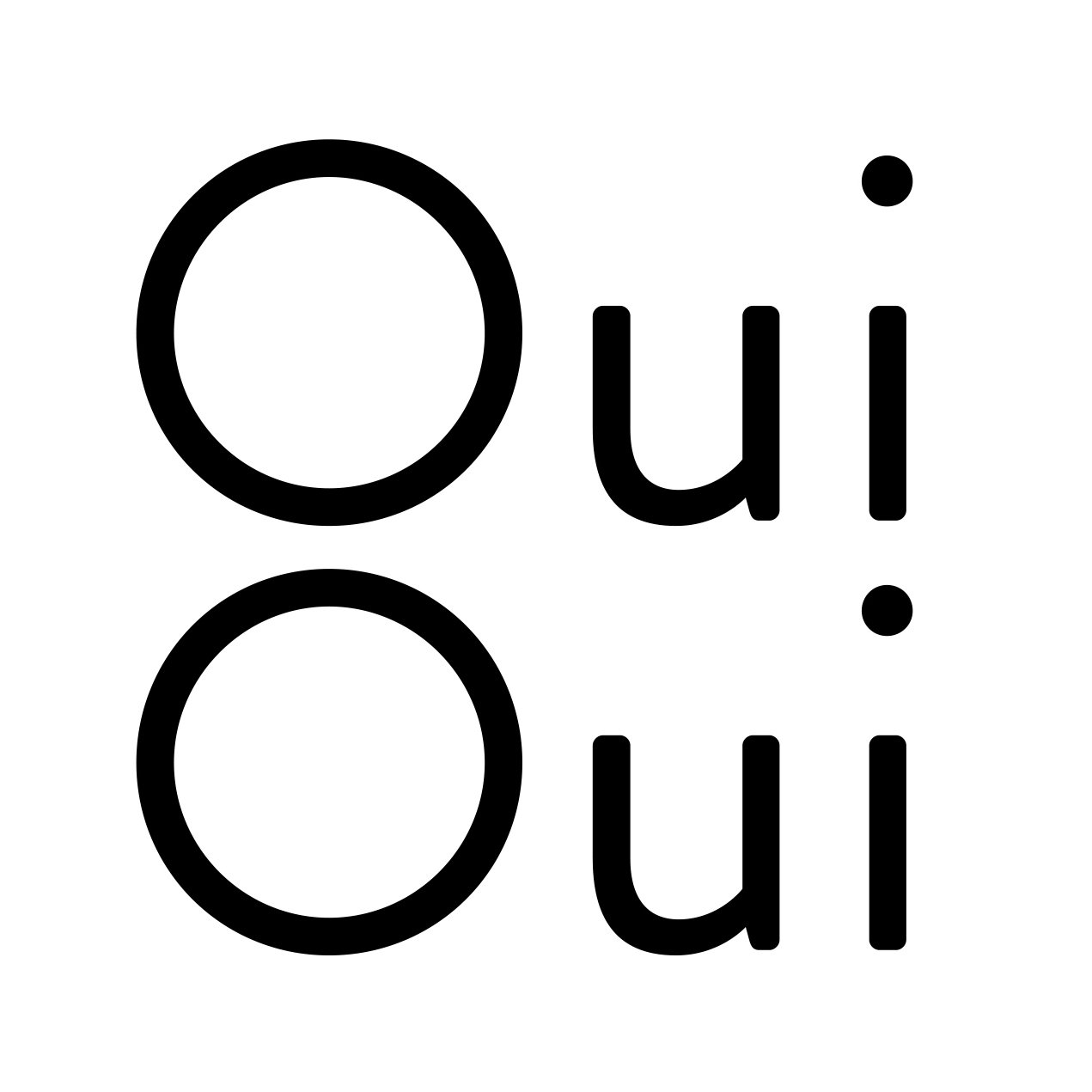Oui Russe: Unlocking The Allure Of Russian "Yes" And Its Cultural Fascination
Ever wondered what makes the simple word "oui russe" so intriguing? It's not just a yes—it's a gateway into the rich tapestry of Russian culture and language. Imagine a single word carrying centuries of history, passion, and complexity. That's exactly what "oui russe" represents. Whether you're diving into the world of Russian literature, exploring its music, or simply curious about how people express agreement in Russia, this phrase holds more depth than you might think.
Now, you might be asking yourself, "Why should I care about 'oui russe'?" Well, here's the thing—language is more than just communication. It's a reflection of identity, values, and societal norms. When you delve into the nuances of how Russians say "yes," you're not just learning a word—you're stepping into their world. And trust me, it's a world worth exploring. From Tolstoy's epic novels to the bustling streets of Moscow, understanding "oui russe" opens doors you never knew existed.
But hold up—before we dive deep into the nitty-gritty of "oui russe," let's set the stage. This isn't just about learning a new phrase; it's about understanding the context, the history, and the cultural significance behind it. So, buckle up because we're about to embark on a linguistic adventure that will change the way you think about Russian "yes" forever. And who knows? You might just find yourself saying "oui russe" in no time!
What Exactly is Oui Russe?
If you're scratching your head wondering what "oui russe" even means, don't worry—you're not alone. The phrase itself is a mix of French and Russian, literally translating to "Russian yes." But why the French influence? That's where history comes in. Back in the day, the Russian aristocracy was all about French culture. They spoke French at court, wrote letters in French, and even flirted in French. So, when they wanted to emphasize their Russian identity, they'd throw in "oui russe" to show they were still rooted in their homeland.
Here's the kicker: "oui russe" isn't just a linguistic quirk—it's a cultural statement. In Russia, saying "yes" isn't as straightforward as you might think. There are layers, nuances, and sometimes even a touch of skepticism. Russians are known for their directness, but they also have this amazing ability to convey so much with just a single word. It's like a secret code that only the initiated can decipher. And trust me, once you crack the code, you'll never look at "yes" the same way again.
The Linguistic Journey of Oui Russe
So, how did "oui russe" make its way into the Russian lexicon? Well, it's a tale of cultural exchange, political shifts, and a dash of romance. Picture this: the 18th century, where Russian nobility was all about French sophistication. They'd throw grand parties, wear the latest Parisian fashions, and, of course, speak French. But beneath all the glamour, there was a growing sense of national identity. Enter "oui russe"—a way to say "yes" while still keeping that Russian soul intact.
- Historical Context: The blending of French and Russian during the Enlightenment era.
- Cultural Significance: A symbol of Russian pride amidst foreign influences.
- Modern Usage: While not commonly used today, "oui russe" still holds a special place in literary and historical discussions.
Why Does Oui Russe Matter Today?
You might be thinking, "Okay, that's cool and all, but why should I care about 'oui russe' in 2023?" Great question! The answer lies in the power of language to connect us across time and space. In today's globalized world, where cultures collide and blend, understanding phrases like "oui russe" gives us a deeper appreciation for diversity. It's like finding a hidden gem in a treasure chest of human expression.
Plus, let's be real—knowing something unique like "oui russe" makes you stand out. Imagine being at a dinner party and casually dropping this phrase into the conversation. People will be like, "Wait, what? How do you know that?" And you'll just smile knowingly, because you've been initiated into the world of Russian linguistic awesomeness.
Modern-Day Applications
While "oui russe" might not be part of everyday Russian conversation anymore, its spirit lives on in various forms. Here's how:
- Literature: Authors like Nabokov and Pasternak have used "oui russe" to add depth to their characters.
- Music: Russian folk songs often incorporate elements of French influence, reflecting the historical blending of cultures.
- Art: Paintings and sculptures from the Russian aristocratic era often depict scenes where French and Russian elements coexist harmoniously.
Oui Russe in Russian Culture
When you think about Russian culture, certain images come to mind—ballet, caviar, and maybe even a vodka toast or two. But beneath the surface, there's a rich tapestry of traditions and values that shape how Russians express themselves. And "oui russe" is a perfect example of this. It's not just about saying "yes"—it's about how you say it, who you're saying it to, and what it implies.
Russians are known for their straightforwardness, but they also value subtlety. Saying "oui russe" is like giving someone a nod of approval while still maintaining a sense of dignity and reserve. It's a delicate balance that only someone well-versed in Russian culture can truly appreciate. And trust me, once you understand this, you'll start seeing it everywhere—in movies, books, and even in casual conversations.
Cultural Nuances of Saying Yes
Here's the thing: in Russia, saying "yes" isn't always a simple affirmation. There are different ways to express agreement, each carrying its own weight. For example:
- Da: The most common way to say "yes," straightforward and to the point.
- Da, no: A more complex form of agreement, often implying "yes, but..."
- Oui Russe: A historical nod to the blending of French and Russian cultures, often used in formal or literary contexts.
Exploring the History of Oui Russe
To truly understand "oui russe," you need to dive into its historical roots. Back in the day, Russian aristocrats were all about French culture. They saw it as a mark of sophistication, a way to elevate themselves above the common folk. But here's the twist—they never lost sight of their Russian identity. That's where "oui russe" comes in—a way to say "yes" while still keeping that Russian soul alive.
Think about it: in a world where everyone was trying to outdo each other in terms of cultural refinement, "oui russe" was a clever way to have the best of both worlds. It was like saying, "We're sophisticated, but we're still Russian at heart." And that's something worth celebrating.
Key Historical Events
Here are some key moments in the history of "oui russe":
- 18th Century: The rise of French influence in Russian courts.
- 19th Century: Russian authors incorporating "oui russe" into their works.
- 20th Century: A decline in usage as Russian nationalism took center stage.
How Oui Russe Reflects Russian Identity
Language is more than just words—it's a reflection of who we are. And "oui russe" is a perfect example of this. It's not just about saying "yes"—it's about expressing identity, values, and societal norms. In a country as vast and diverse as Russia, language plays a crucial role in uniting people and preserving their heritage.
When you say "oui russe," you're not just speaking—you're connecting with centuries of history, culture, and tradition. It's like a secret handshake that only those in the know can appreciate. And trust me, once you're part of that club, you'll never want to leave.
The Role of Language in Identity
Here's how language shapes identity in Russia:
- Unity: Despite its diversity, Russian language serves as a unifying force.
- Preservation: Phrases like "oui russe" help preserve cultural heritage.
- Expression: Language allows Russians to express themselves in ways that are uniquely their own.
Oui Russe in Popular Media
If you're a fan of Russian literature, music, or cinema, chances are you've come across "oui russe" in some form or another. It's a favorite among authors and filmmakers who want to add a touch of authenticity to their works. And let's be honest—who doesn't love a little authenticity?
From Tolstoy's epic novels to modern Russian films, "oui russe" has made its mark on popular media. It's a way to ground the story in reality while still adding a touch of sophistication. And trust me, it works every time.
Notable Appearances
Here are some notable appearances of "oui russe" in popular media:
- War and Peace: Tolstoy's masterpiece features characters who use "oui russe" to convey their aristocratic roots.
- Modern Films: Directors often include "oui russe" in dialogues to add authenticity to their Russian settings.
- Music Videos: Russian artists sometimes incorporate "oui russe" into their lyrics for a touch of nostalgia.
Learning Oui Russe: Tips and Tricks
So, you're ready to learn "oui russe"? Great! Here are some tips and tricks to get you started:
- Start with the Basics: Learn the common ways to say "yes" in Russian first.
- Dive into History: Understanding the historical context will help you appreciate the phrase more.
- Practice with Media: Watch Russian films or read Russian literature to see "oui russe" in action.
Common Mistakes to Avoid
Here are some common mistakes to avoid when learning "oui russe":
- Overusing It: Remember, "oui russe" isn't part of everyday conversation anymore.
- Ignoring Context: Make sure you understand the cultural context before using it.
- Forgetting the Nuance: "Oui russe" carries a lot of weight, so use it sparingly and with care.
Conclusion
So, there you have it—the fascinating world of "oui russe." From its historical roots to its cultural significance, this phrase is more than just a "yes"—it's a window into the rich tapestry of Russian culture. Whether you're a language enthusiast, a history buff, or just someone looking to impress at a dinner party, "oui russe" is definitely worth exploring.
Now, it's your turn. Share this article with your friends, leave a comment, or check out our other articles on Russian culture. Who knows? You might just find yourself saying "oui russe" before you know it!
.png)

Detail Author:
- Name : Mozelle Gutmann Sr.
- Username : pschoen
- Email : dena.willms@kessler.com
- Birthdate : 1995-04-21
- Address : 8228 Trent Vista Suite 732 West Bernie, VA 41747
- Phone : 256-983-0670
- Company : Zemlak-Kertzmann
- Job : Precision Printing Worker
- Bio : Ut quidem pariatur neque repellendus nisi animi. Et autem est impedit temporibus aut ea. Aut nulla adipisci reiciendis ea iure.
Socials
instagram:
- url : https://instagram.com/claudia_official
- username : claudia_official
- bio : Perferendis quia ad adipisci iure. Quia adipisci commodi omnis natus maxime facilis impedit.
- followers : 5031
- following : 1780
linkedin:
- url : https://linkedin.com/in/claudia.kemmer
- username : claudia.kemmer
- bio : Fugit eos temporibus qui harum aut quis fugit.
- followers : 4316
- following : 2623